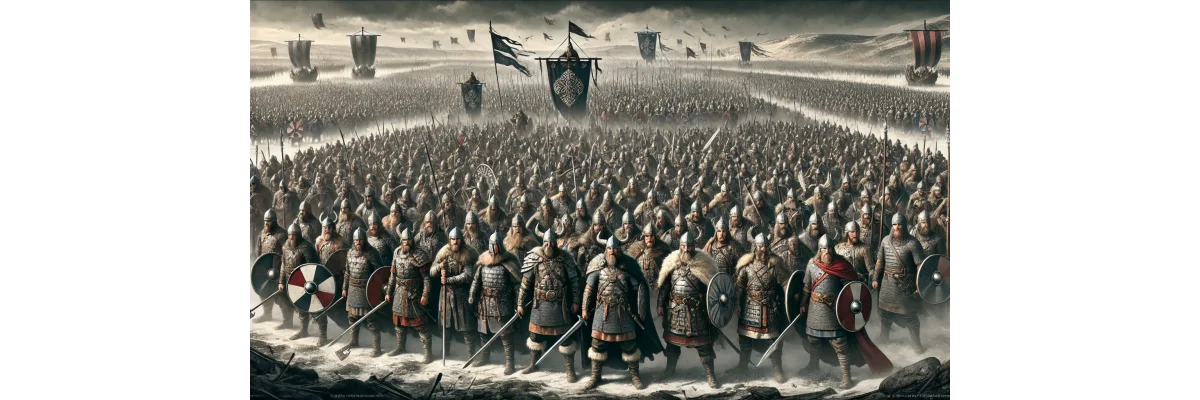The Germanic Tribe of the Marcomanni – Warriors, Culture, and History
The Marcomanni – A Prominent Germanic Tribe
The Marcomanni, whose name translates to "border men" or "border dwellers," were a significant Germanic tribe that played a central role in European history. They were mentioned in ancient sources, especially by Roman historians like Tacitus. Originally settled in the region of present-day Germany, they were renowned for their martial prowess, close connection to nature, and unyielding defense of their homeland.
Origins and Settlements
The Marcomanni belonged to the Suebi group and initially lived in areas along the Main River. Due to pressure from Roman expansions and other Germanic tribes, they migrated to Bohemia (modern-day Czech Republic). There, they established a stable power base and became key players in the alliance of Germanic tribes against Rome.
Bohemia provided the Marcomanni with natural protection through its mountains and forests, as well as a strategic position for trade and regional dominance.
The Marcomannic Wars (166–180 AD)
One of the most famous episodes in Marcomannic history was the Marcomannic Wars against the Roman Empire. These conflicts, occurring during the reign of Emperor Marcus Aurelius, were a series of battles between Germanic tribes and the Romans along the Danube frontier.
Causes of the Conflicts
- Migration and Resource Scarcity: Germanic tribes sought new territories due to climate changes and resource shortages.
- Roman Expansion: The expansion of Roman borders caused tensions with local tribes.
- Raids and Plundering: The Marcomanni and their allies conducted frequent raids into Roman territories.
Course of the Wars
The Marcomanni, allied with tribes like the Quadi and Vandals, formed a coalition. Despite their strength and successful raids into Roman provinces such as Pannonia and Noricum, they were eventually pushed back by the disciplined Roman legions.
Marcus Aurelius personally led several campaigns against the Marcomanni, establishing a series of military camps along the Danube to secure the Roman frontier.
Society and Culture of the Marcomanni
The Marcomanni's society was primarily shaped by a warrior culture. They lived in small communities led by a chieftain or king. Tacitus describes the Germanic tribes, including the Marcomanni, as a freedom-loving people who valued honor and loyalty.
Way of Life
- Economy: The Marcomanni were primarily herders and hunters. Trade was vital, and they exchanged furs, amber, and other goods with Roman merchants.
- Religion: Like many Germanic tribes, the Marcomanni worshiped nature gods and held sacred rituals in forests and near springs.
- Military Focus: Men were trained as warriors from a young age. Their weapons included spears, shields, and simple swords.
Influence of the Marcomanni
The Marcomanni significantly influenced European history. Their role as defenders of Germanic territories against the Romans and their ability to forge alliances with other tribes made them central figures in the Germanic world.
Connection to Later Events
- Future Kingdom of Bohemia: The settlement of the Marcomanni in Bohemia laid the foundation for the region's later development.
- Inspiration for Germanic Resistance: The Marcomanni's fighting spirit and organization inspired other tribes.
The Legacy of the Marcomanni
Though the Marcomanni eventually merged into larger Germanic groups, their legacy endures. Their story symbolizes the courage and determination of the Germanic peoples to preserve their identity and independence.

 German
German














